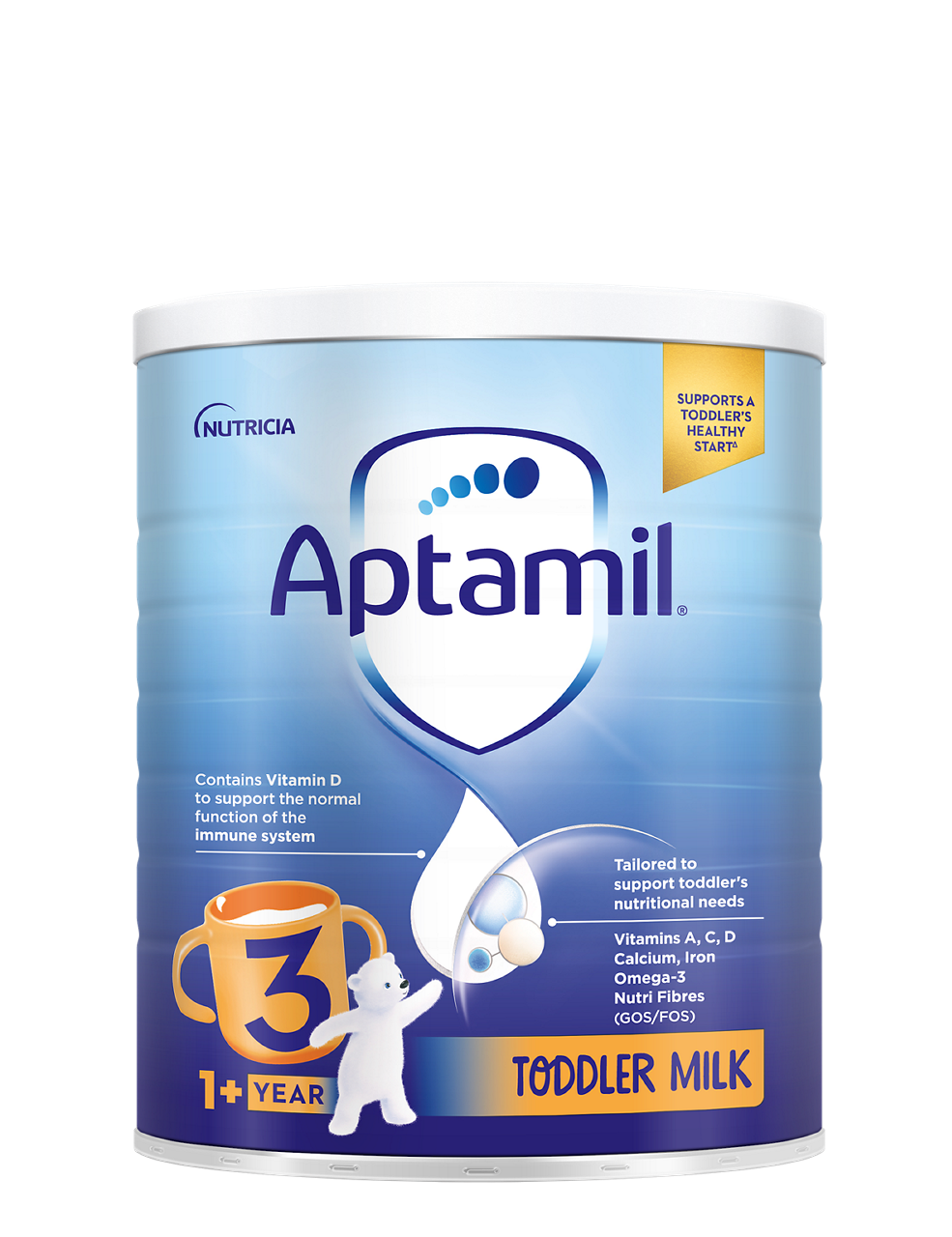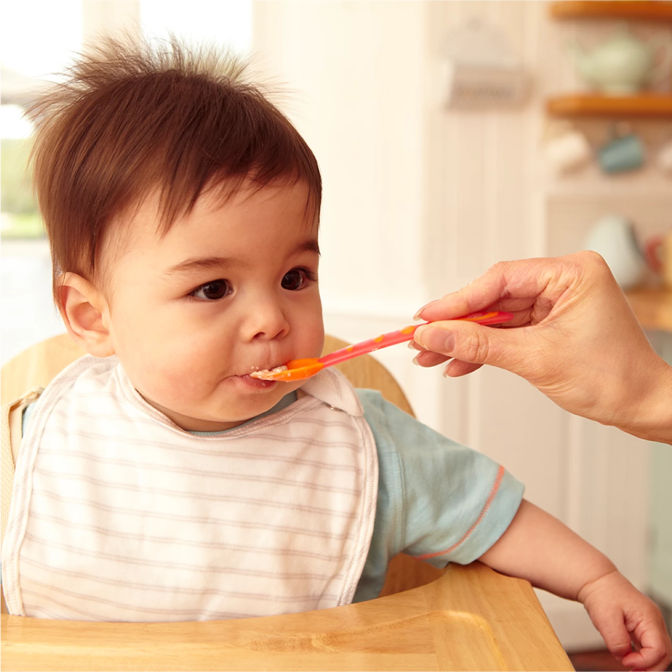The design across our Toddler Milks range is being updated to make it easier to identify the right product.
We are constantly reviewing our products and therefore have also made some changes to our Aptamil Toddler Milk 200ml and 1L liquid formulations. There will be changes to some of the ingredients and amounts of vitamins, minerals and other nutrients in our formulations including additional fibre. You can be assured that both our Aptamil Toddler Milk 200ml and 1L liquid products have key nutrients for a child at that age stage, including carbohydrates, energy and fibre. There are no changes to allergens.
Aptamil® Toddler Milk Ready To Drink 1L
Inspired by 50 years of research in early life science, our team of scientists have developed our Aptamil® Toddler Milk liquids, specially formulated with our unique blend of GOS/FOS, plus iron and vitamin D to help support your toddlers growth and development from 1-2 years.
Aptamil® Toddler Milk 1000ml ready to drink cartons are not halal certified.
What other Aptamil products are halal approved?
Product information
Use Toddler Milk as part of a varied balanced diet from 1 year.
Inspired by 50 years of research in early life science, our team of scientists have developed our Aptamil® Toddler Milk liquids, specially formulated with our unique blend of GOS/FOS, plus iron and vitamin D to help support your toddlers growth and development from 1-2 years.
What's changing

Water, Skimmed milk, Lactose (from milk), Galacto-oligosaccharides (GOS) (from milk), Vegetable oils (Rapeseed oil, High oleic sunflower oil, Sunflower oil), Emulsifiers (Mono- and diglycerides of fatty acids, Sunflower lecithin), Fructo-oligosaccharides (FOS), Calcium phosphate, Calcium citrate, Potassium dihydrogen phosphate, Acidity regulators (Citric acid, Potassium hydroxide), Calcium Carbonate, Fish oil, Calcium hydroxide, Milk flavouring, Vitamin C, Ferrous lactate, Stabiliser (Carrageenan), Vitamin A, Riboflavin, Potassium iodide, Vitamin D3, Vitamin B12.
Allergy Advice: For allergens, see ingredients in bold.
- Nutritional information
- Typical values per 100ml
- Energy
- 211kJ/51kcal
- Fat
- 2.7g
- of which, saturates
- 0.3g
- Carbohydrate
- 5.1g
- of which, sugars
- 4.8g
- Fibre
- 0.9g
- Protein
- 1.0g
- Salt
- 0.04g
- Vitamins
- Vitamin A
- 72µg/18%**
- Vitamin D3
- 2.1µg/30%**
- Vitamin C
- 8.0mg/18%**
- Riboflavin (B2)
- 0.13mg/19%**
- Vitamin B12
- 0.23µg/29%**
- Minerals
- Calcium
- 120mg/22%**
- Iron
- 1.31mg/16%**
- Iodine
- 14.1µg/18%**
- Others
- GOS/FOS^
- 1.3g
- Omega 3 LCPs†
- 0.009g
**Reference Intake - a guide to the amount of vitamins and minerals needed per day for infants and young children
^Galacto-oligosaccharides/ Fructo-oligosaccharides
†Long-chain polyunsaturated fatty acids
How to prepare your toddler's milk
Step 1
Shake the carton of Aptamil® Toddler before opening.
Step 2
Pour the required amount of milk into a clean beaker.
Step 3
Aptamil® Toddler Milk can be given at room temperature or warmed if desired. If warmed, check the temperature of drink.
Step 4
For hygiene reasons, discard unfinished milk in the beaker as soon as possible and always within 2 hours.
Other products in this range

Need some help?
You can get quick answers to common questions in our FAQs.
Alternatively, if you need help with general pregnancy or baby advice, or maybe on using or ordering our products - our expert team are always on hand to talk about feeding your baby.
Important notice
Breastfeeding is best for babies. Infant formula is suitable from birth when babies are not breastfed. Follow-on milk is only for babies over 6 months, as part of a mixed diet and should not be used as a breastmilk substitute before 6 months. We advise that all formula milks including the decision to start weaning should be made on the advice of a doctor, midwife, health visitor, public health nurse, dietitian, pharmacist or other professional responsible for maternal and child care, based on baby’s individual needs.
Do not use if your baby has been diagnosed with a cow's milk allergy.
Use Toddler Milk as part of a varied balanced diet from 1 year.







